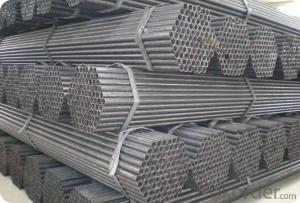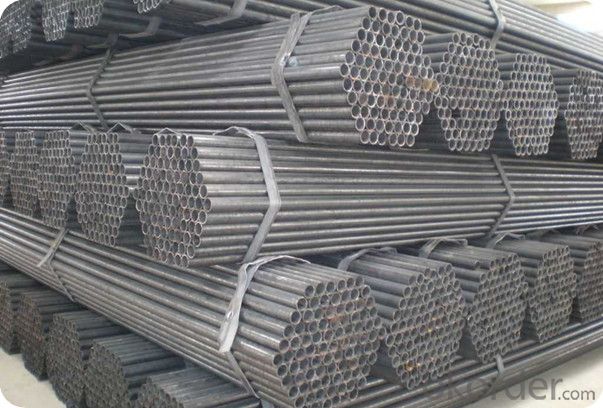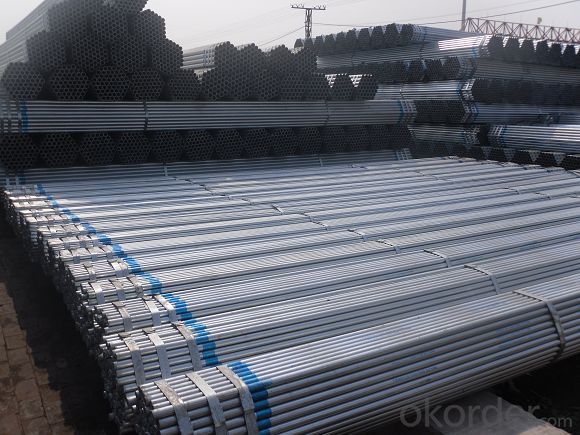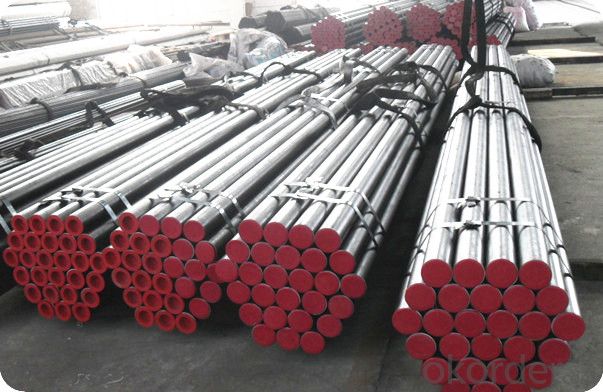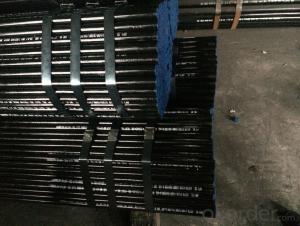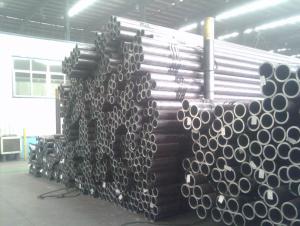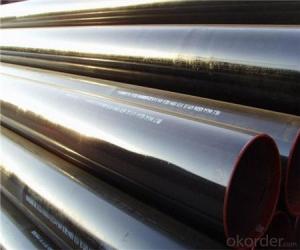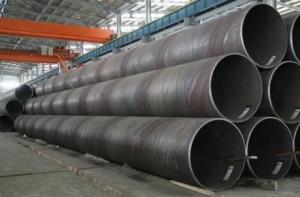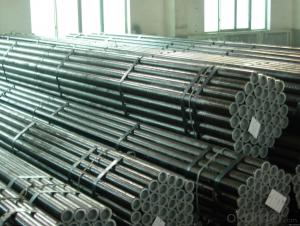Welded Steel Pipe API SPEC 5CT Steel Pipe API for Gas Water Conveying
- Loading Port:
- China Main Port
- Payment Terms:
- TT or LC
- Min Order Qty:
- 30 m.t.
- Supply Capability:
- 6500 m.t./month
OKorder Service Pledge
OKorder Financial Service
You Might Also Like
1、Structure of Welded Black ERW Steel Pipe 5L 5 CT :
Welded Black ERW Steel Pipe 5L 5 CT is electric resistance welding, the abbreviation for ERW for transporting oil and natural gas vapor liquid objects, can meet the requirements of high and low pressure, the transport in the world with pipe sector accounted for a pivotal position.With sound reputation and high quality , we will offer clients a wonderful business experience.
2、Main Features of Welded Black ERW Steel Pipe 5L 5 CT :
• High manufacturing accuracy
• High strength
• Good visual effect
• Good view and appearance
• Good shape
• Reasonable price
• Small inertia resistance
• Strong heat dissipation ability
3、Welded Black ERW Steel Pipe 5L 5 CT Specification:
Standard | GB, DIN, ASTM ASTM A106-2006, ASTM A53-2007 |
Grade | 10#-45#, 16Mn 10#, 20#, 45#, 16Mn |
Thickness | 1 - 33 mm |
Section Shape | Round |
Outer Diameter | 21 - 610mm |
Place of Origin | Tianjin, China (Mainland) |
Secondary Or Not | Non-secondary |
Application | Hydraulic Pipe |
Technique | Cold Drawn |
Certification | API |
Surface Treatment | factory state or painted black |
Special Pipe | API Pipe |
Alloy Or Not | Non-alloy |
Length | 5-12M |
Outer Diameter | 21.3-610mm |
Grade | 20#, 45#, Q345, API J55, API K55, API L80, API N80, API P110, A53B |
Standard | ASME, ASTM |
1) Material:20#(ASTM A 106/A53 GRB.API5LGRB,GB),45#,16Mn,10#.
2) Specification range:OD:21.3-610mm,WT:6-70mm,length:6-12m or according to the requirement of clients.
3) Excutive standards:GB,ASME API5L.ASTM A 106/A53,Despite of the above standards,we can also supply seamless steel pipe with standard of DIN,JIS,and so on,and also develop new products according to the requirements of our clients!
4) Surface:black lacquered,varnish coating or galvanized.
4、Packaging & Delivery
Packaging Details: | seaworthy package,bundles wrapped with strong steel strip |
Delivery Detail: | 15-30days after received 30%TT |
5、FAQ of Welded Black ERW Steel Pipe 5L 5 CT :
①How is the quality of your products?
Our products are manufactured strictly according to national and internaional standard, and we take a test
on every pipe before delivered out. If you want see our quality certifications and all kinds of testing report, please just ask us for it.
Guaranteed: If products’ quality don’t accord to discription as we give or the promise before you place order, we promise 100% refund.
③Why should you chose us?
Chose happens because of quality, then price, We can give you both.Additionally, we can also offer professional products inquiry, products knowledge train(for agents), smooth goods delivery, exellent customer solution proposals.Our service formula: good quality+good price+good service=customer’s trust
SGS test is available, customer inspection before shipping is welcome, third party inspection is no problem.
6、 Welded Black ERW Steel Pipe 5L 5 CT Images:
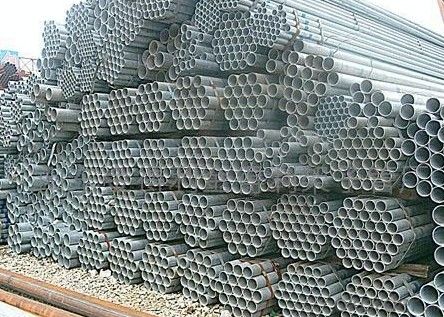
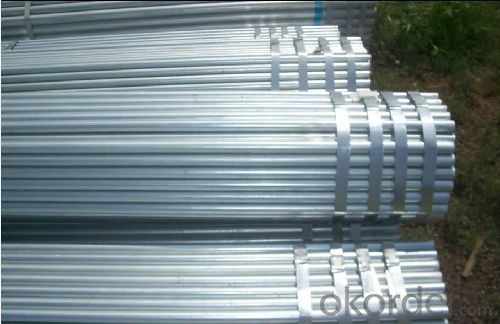
- Q: How are steel pipes inspected for compliance with industry standards?
- Steel pipes are inspected for compliance with industry standards through various methods, including visual examination, dimensional measurements, non-destructive testing, and mechanical testing. Trained inspectors carefully inspect the pipes to ensure they meet the required specifications, such as wall thickness, diameter, and surface quality. Non-destructive testing techniques like ultrasonic testing or magnetic particle inspection are used to detect any internal or surface defects. Mechanical tests, such as tensile or bend tests, are performed to evaluate the pipe's strength and ability to withstand pressure. These inspections help ensure that steel pipes meet the necessary industry standards and are fit for their intended use.
- Q: Can steel pipes be used for transporting sewage?
- Yes, steel pipes can be used for transporting sewage. Steel pipes are commonly used in sewage systems due to their durability, strength, and corrosion resistance, making them suitable for carrying wastewater and sewage over long distances.
- Q: What is the difference between hot dip galvanized steel pipe and galvanized steel pipe?
- 1, the process is different, one is chemical treatment, one is physical treatment; hot-dip galvanized coating is reliable, not easy to fall off2, hot-dip galvanized coating thickness, so strong corrosion resistance. And zinc plating (electroplating) coating evenly, surface quality is better, coating thickness is generally between a few microns to more than ten microns.3 hot galvanizing is a chemical process, which belongs to electrochemical reaction. Zinc plating is a physical treatment, just brush a layer of zinc on the surface, there is no galvanizing inside, so the zinc layer is easy to fall off. Hot-dip galvanizing is used in building construction.4 、 hot galvanized pipe is to make molten metal and iron matrix reaction and produce alloy layer, so that the substrate and coating two combination.
- Q: What are the different methods of joining steel pipes for high-pressure applications?
- Some of the different methods of joining steel pipes for high-pressure applications include welding, threaded connections, flanged connections, and mechanical couplings. Welding involves fusing the pipes together using heat, making it a strong and permanent connection. Threaded connections involve screwing the pipes together using threads on the ends, which can be easily assembled and disassembled. Flanged connections involve using flanges and bolts to connect the pipes, providing a secure and leak-proof connection. Mechanical couplings use mechanical devices such as clamps or compression fittings to join the pipes, allowing for quick and easy installation and removal.
- Q: What is the difference between ERW and SAW steel pipes?
- ERW (Electric Resistance Welded) steel pipes are manufactured by rolling metal sheets into a tube shape and then welding the edges together using an electric current. On the other hand, SAW (Submerged Arc Welded) steel pipes are produced by placing a metal plate in a welding machine with a submerged arc welding process. The key difference lies in the welding technique used, with ERW pipes having a welded seam along the length, while SAW pipes have a more uniform and continuous weld. This difference in welding method also affects the overall strength and durability of the pipes, making them suitable for different applications.
- Q: Can steel pipes be used for sewage and wastewater systems?
- Yes, steel pipes can be used for sewage and wastewater systems. Steel pipes offer durability, strength, and resistance to corrosion, making them suitable for conveying sewage and wastewater. Additionally, steel pipes can handle high-pressure flows and are often used in larger diameter applications, making them a reliable choice for sewage and wastewater systems.
- Q: What are the different coatings applied to steel pipes?
- There are several different coatings that can be applied to steel pipes to enhance their corrosion resistance and durability. Some common coatings include epoxy coatings, polyethylene coatings, zinc coatings (galvanization), and polyurethane coatings. Each coating has its own specific benefits and is chosen based on the intended application and environmental conditions.
- Q: Are there specifications for scaffold steel pipe with 48mm * 3.2mm?
- Previously used steel pipe GB 51*3.0mm, the latest national standard JGJ130-2001 stipulates that the use of steel pipe for construction projects need to be 48*3.5mm specifications, the wall thickness should be 3.5mm square for qualified products.
- Q: Can steel pipes be used for piling?
- Yes, steel pipes can be used for piling. Steel pipes are often used as piles in construction projects due to their strength, durability, and ability to withstand heavy loads. They provide strong support for structures and are commonly used in foundation systems for buildings, bridges, and other infrastructure.
- Q: What are the different types of steel pipe coatings for corrosion protection?
- There are several types of steel pipe coatings used for corrosion protection, including epoxy coatings, polyethylene coatings, zinc coatings, and coal tar coatings. Each coating offers different levels of protection and is chosen based on the specific application and environmental conditions.
Send your message to us
Welded Steel Pipe API SPEC 5CT Steel Pipe API for Gas Water Conveying
- Loading Port:
- China Main Port
- Payment Terms:
- TT or LC
- Min Order Qty:
- 30 m.t.
- Supply Capability:
- 6500 m.t./month
OKorder Service Pledge
OKorder Financial Service
Similar products
Hot products
Hot Searches
Related keywords
